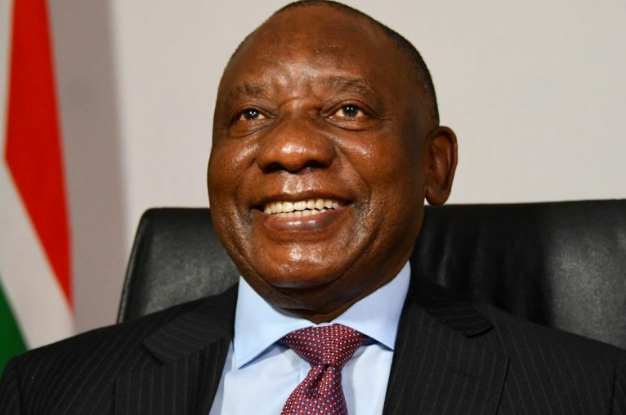South Africa has expressed firm support for the International Criminal Court (ICC) prosecutor’s announcement regarding the request for arrest warrants against Israeli Prime Minister Benjamin Netanyahu, his defence chief, and three Hamas leaders over alleged war crimes.
President Cyril Ramaphosa underscored the significance of applying international law uniformly to all parties involved in conflicts, highlighting that such measures are crucial to uphold the international rule of law, ensure accountability, and protect the rights of victims.
Historically, South Africa has been a staunch advocate for Palestinian rights, a stance rooted in its own experiences of overcoming apartheid and advocating for human rights.
[ICC Seeks Arrest Warrants For Hamas And Israeli Leaders Over October 7 Attacks]
This commitment was further demonstrated when South Africa initiated legal proceedings against Israel at the International Court of Justice (ICJ), accusing it of genocide.
Such actions underscore South Africa’s dedication to addressing systemic injustices and championing the rights of oppressed populations.
The charges outlined by ICC prosecutor Karim Khan against Netanyahu and his defence chief Gallant are grave, including allegations of ‘starvation,’ ‘willful killing,’ ‘extermination,’ and ‘murder.’
These charges reflect the severe humanitarian concerns associated with the conflict. Similarly, the charges against the Hamas leaders are equally serious, encompassing ‘extermination,’ ‘rape,’ and the ‘taking of hostages.’
These allegations highlight the egregious nature of the acts committed, necessitating rigorous legal scrutiny and accountability.
South Africa’s support for the ICC’s actions is rooted in its unwavering commitment to the principles of international rule of law, human rights, and the peaceful resolution of conflicts.
The International Criminal Court’s (ICC) recent request for arrest warrants against Israeli Prime Minister Benjamin Netanyahu and leaders of Hamas has elicited a spectrum of reactions from the global community, underscoring the contentious nature of this decision.
Israeli Prime Minister Benjamin Netanyahu has vehemently denounced the ICC’s move, labeling it as an ‘attack on Israel.’ He argued that the court was overstepping its mandate and interfering in Israel’s sovereignty.
Netanyahu’s stance reflects a broader sentiment within the Israeli government, which has long criticized the ICC’s investigations into alleged war crimes in the Palestinian territories.
Conversely, Hamas has also expressed strong disapproval, albeit for different reasons. The group criticized the ICC prosecutor, accusing him of ‘equating the victim with the executioner.’
Hamas contends that the request undermines the plight of Palestinians and fails to acknowledge the asymmetry of power and suffering in the Israeli-Palestinian conflict. This reaction highlights the ongoing tension and divergent narratives between Israel and Palestinian factions regarding accountability and justice.
On the international stage, U.S. President Joe Biden has condemned the ICC’s action, describing the application for arrest warrants as ‘outrageous.’
The United States has historically opposed ICC jurisdiction over its allies and has questioned the court’s impartiality and legitimacy in certain cases. Biden’s statement underscores the U.S. administration’s continued support for Israel and its scepticism towards the ICC’s interventions in the region.
In contrast, France has expressed support for the ICC’s independence and its efforts to combat impunity. The French government emphasized the importance of the court’s role in upholding international law and accountability.
France’s position aligns with a broader European perspective that often advocates for international legal mechanisms to address alleged war crimes and human rights violations.
Amid these polarised reactions, South Africa has taken a proactive stance by petitioning the International Court of Justice (ICJ) to intervene and halt the Israeli assault on the Gaza city of Rafah.
This move by South Africa reflects its commitment to addressing what it perceives as a gross violation of international law and human rights. It also adds another layer to the complex global dynamics surrounding the ICC’s actions.
The varied responses to the ICC’s request for arrest warrants against Netanyahu and Hamas leaders reveal deep divisions within the international community.
Catch up with the latest news from The Times Post on WhatsApp by following our channel. Click here to join.
Kindly follow @thetimespost on Instagram. On X (Twitter), follow @thetimespost2.


